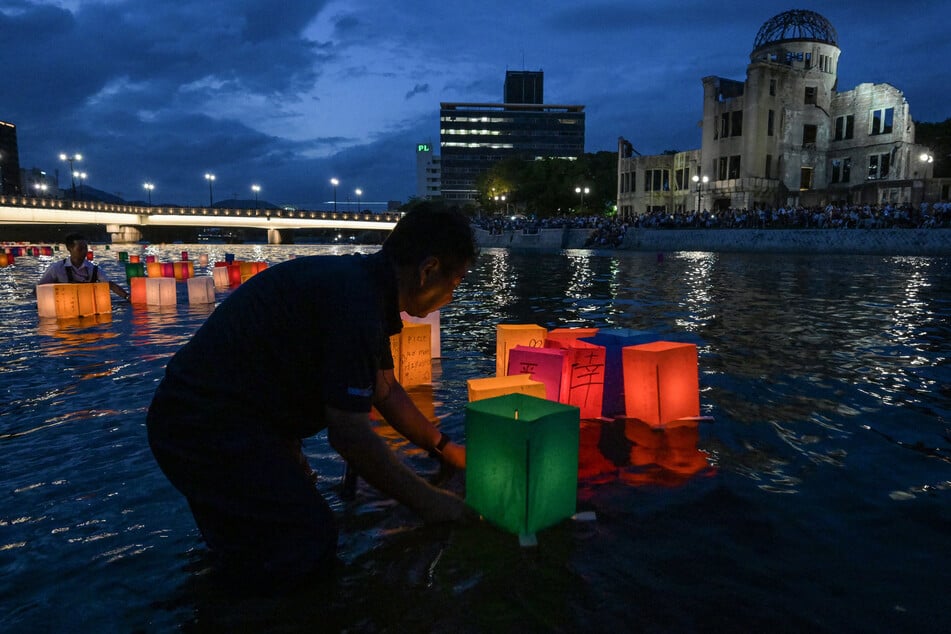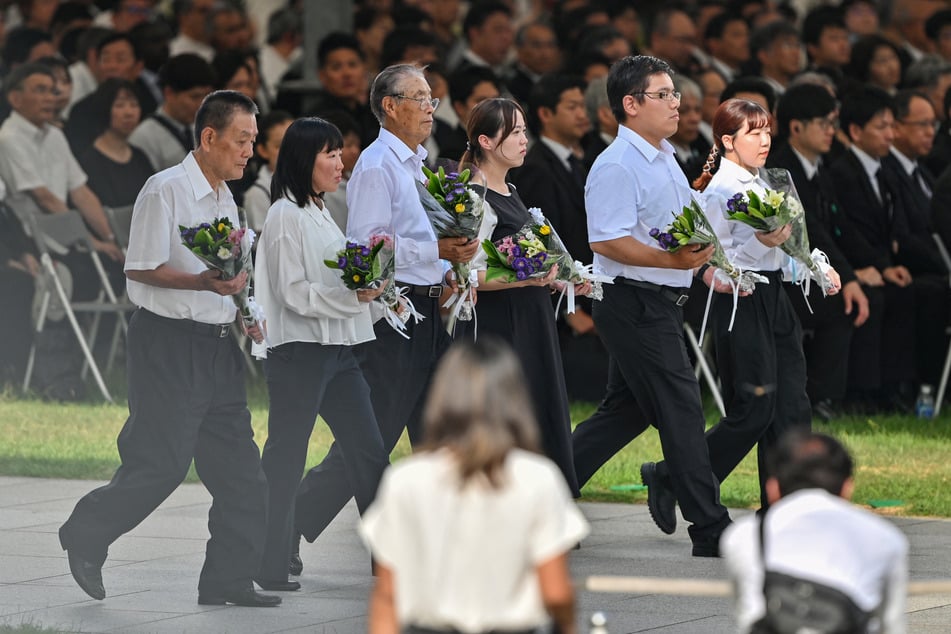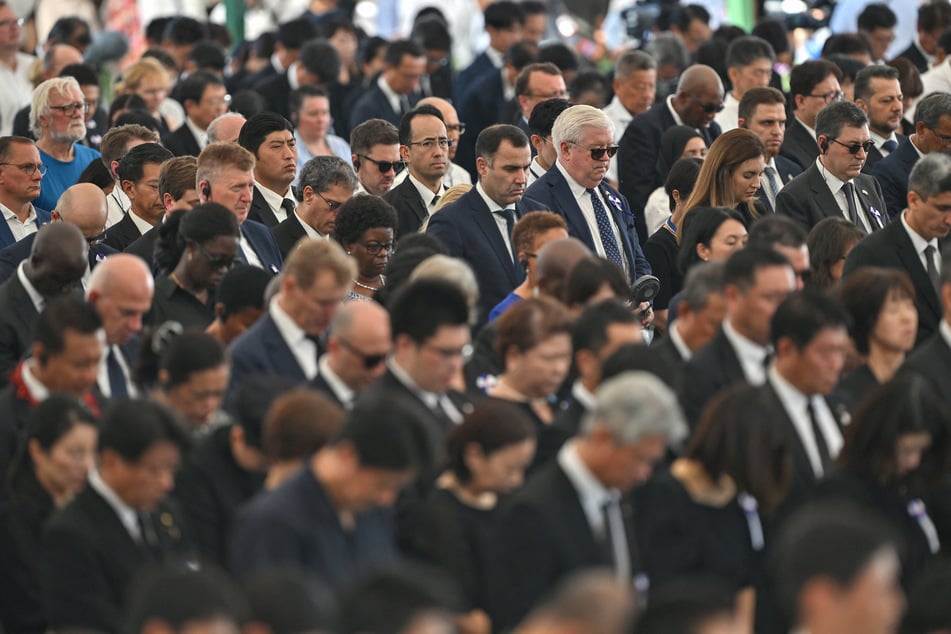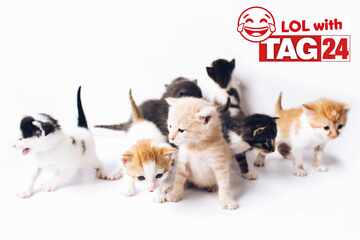Hiroshima marks 80 years since atomic bombing amid rising US-Russia nuclear tensions
Hiroshima, Japan - Japan marked 80 years since the atomic bombing of Hiroshima on Wednesday with a ceremony reminding the world of the horrors unleashed, as saber-rattling between the US and Russia keeps the nuclear "Doomsday Clock" close to midnight.

A silent prayer was held at 8:15 AM, the moment when US aircraft Enola Gay dropped "Little Boy" over the western Japanese city on August 6, 1945.
On a sweltering morning, hundreds of black-clad officials, students, and survivors laid flowers at the memorial cenotaph, with the ruins of a domed building in the background, a stark reminder of the horrors that unfolded.
In a speech, Hiroshima mayor Kazumi Matsui warned of "an accelerating trend toward military buildup around the world," against the backdrop of Russia's invasion of Ukraine and the chaos in the Middle East.
"These developments flagrantly disregard the lessons the international community should have learned from the tragedies of history," he said.
Prime Minister Shigeru Ishiba said it was Japan's mission "to take the lead... toward a world without nuclear weapons."
The final death toll of the Hiroshima attack would hit around 140,000 people, killed not just by the colossal blast and the ball of fire, but also later by the radiation.
Three days after "Little Boy," on August 9, another atomic bomb killed 74,000 people in Nagasaki. Imperial Japan surrendered on August 15, bringing an end to World War II.
Families of Hiroshima attack victims come to pay their respects

Today, Hiroshima is a thriving metropolis of 1.2 million, but the attacks live on in the memories of many.
On the eve of the ceremony, people began lining up to pay their respects to the victims in front of the cenotaph.
Before dawn on Wednesday, families who lost loved ones in the attack also came to pray.
Yoshie Yokoyama, 96, who arrived in a wheelchair with her grandson, told reporters that her parents and grandparents were bomb victims.
"My grandfather died soon after the bombing, while my father and mother both died after developing cancer. My parents-in-law also died, so my husband couldn't see them again when he came back from battlefields after the war," she added.
"People are still suffering."
Wednesday's ceremony was set to include a record of around 120 countries and regions, including, for the first time, Taiwanese and Palestinian representatives.
The US – which has never formally apologized for the bombings – was represented by its ambassador to Japan. Russia and China were absent.

Nihon Hidankyo, the grassroots organization that last year won the Nobel Peace Prize, is representing the dwindling number of survivors, known as hibakusha.
As of March, there were 99,130 hibakusha, according to the Japanese health ministry, with the average age of 86.
Cover photo: Richard A. Brooks / AFP

